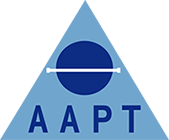News
Guidance document revised: Post Mortems Friends & Relatives
The AAPT has revised it's guidance on Post Mortem Examinations on Friends & Relatives.
The January 2013 version can be found as a downloadable PDF at:
http://www.aaptuk.org/go/professional-support:guidance-documents
Full text:
Post mortem examinations can be both physically and mentally demanding for any Anatomical Pathology Technologist (APT) but are completed with a level of care and skill that they hope would be extended to their family and friends should the need ever arise.
What if the deceased is someone known to the APT?
This includes a family member, close friend, a neighbour or acquaintance.
What does the APT have to do in this situation?
There is no published guidance specific to this particular issue so the Association of Anatomical Pathology Technology (AAPT) has compiled the following information for APTs should the situation arise.
1. Who has responsibility for making this decision?
Employers have a duty of care for the health and safety of their employees and this applies both to the physical and psychological wellbeing and they should never therefore knowingly place their employees in a position of harm. Under the Health and Safety at Work etc Act 1974¹ employers have a general duty to ensure, so far as is reasonably practicable, the health of their employees at work. This includes taking steps to make sure they do not suffer stress-related illness as a result of their work. This duty of care also lies with the employee for both their own wellbeing and that of their colleagues.
Management of Health and Safety at Work Regulations 1999 requires employers to assess risks to health and safety from the hazards of work. This includes the risk of employees developing stress-related illness because of their work. You are required to carry out a ‘suitable and sufficient risk assessment’. (HSE Guidance HSG218)²
The decision as to whether or not a person carries out any procedure on persons known to them should be taken jointly and by agreement of both parties following a full risk assessment. This discussion should take place at the earliest opportunity to avoid any delays which may cause distress to the bereaved.
The AAPT does not believe that an APT should be compelled to carry out any procedure on persons known to them where this may compromise their well being.
2. What if the APT wishes to participate in the post mortem examination?
Many APT’s wish to be involved as a mark of respect for the deceased and the bereaved so where possible this should be permitted. The employer has the right to and may, with good reason, insist that the APT should not be involved. This requires dispassionate and rational discussion and if necessary an independent mediator i.e. Human Resources representative to reach an agreeable and appropriate decision. This should form part of a full risk assessment.
3. Are there other factors which may affect the decision?
As well the wellbeing of the APT, there is also the issue of compromising patient confidentiality. Participating in the post mortem examination may lead to pressure on the APT to disclose information relating to the case by the bereaved, which may cause difficulties both professionally and domestically. Where an employer, or APT, has reason to believe there may be an issue then they must respect the rights of the deceased and the APT should not be asked, or request, to participate. This should be viewed as a protective position for both employer and APT so that they are not put into an untenable position either with their employer or the bereaved.
4. What if there is no option other than to participate?
After full and frank discussion with the employer, and having exhausted all other possibilities, if there is no option other than to participate then the onus must be on the employer to ensure that adequate counselling and support are made available with assured follow ups, as and when required.
As previously stated AAPT does not believe that an APT should be compelled to carry out any procedure on persons known to them where the APT feels this would affect their wellbeing. AAPT cannot foresee any occasion where this should be necessary within the normal remit of the profession.
The General Medical Council (GMC) advocates that medical staff should not, where possible, treat friends or relatives.³
The Nursing & Midwifery Council (NMC) makes a similar recommendation for nurses and midwives.4
If you are suspended or dismissed for refusing to undertake an unsafe working practice, you should refer to the information on Enforcing Health & Safety at Work.5
References
1. Health and Safety at Work etc. Act 1974
http://www.legislation.gov.uk/ukpga/1974/37/contents
2. Managing the causes of work-related stress (HSG218)
http://www.hse.gov.uk/pubns/priced/hsg218.pdf
3. Good Medical Practice - GMC
http://www.gmc-uk.org/guidance/10247.asp
4. Nursing & Midwifery Council
http://www.nmc-uk.org/Nurses-and-midwives/Regulation-in-practice/Regulation-in-Practice-Topics/Nurses-or-midwives-caring-for-relatives-and-friends1/
5. HSE – Health & Safety Guidance 218
http://www.hse.gov.uk/pubns/books/HSG218.htm
6. Enforcing Health & Safety at Work
http://www.hse.gov.uk/enforce/index.htm
